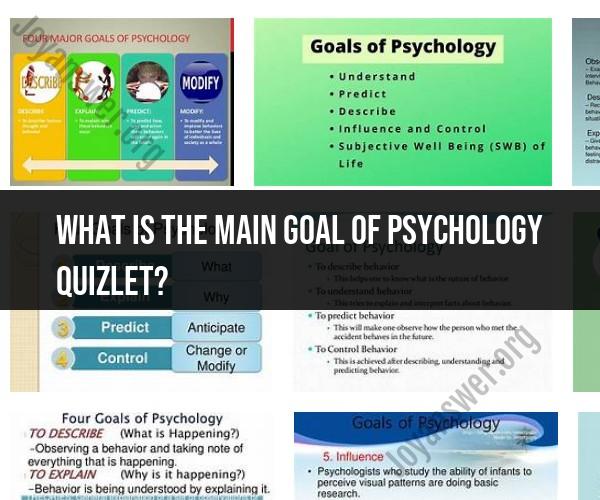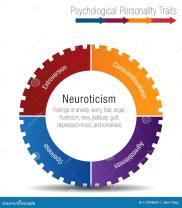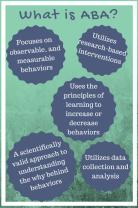What is the main goal of psychology Quizlet?
The main goal of psychology, as summarized on Quizlet or in general, is to study and understand human behavior and mental processes. This overarching goal can be broken down into several specific objectives and aims within the field of psychology, including:
Understanding Behavior: Psychology seeks to explain and understand why people behave the way they do. This involves examining both overt behaviors (observable actions) and covert behaviors (thoughts, feelings, and emotions).
Exploring Mental Processes: Psychology aims to investigate and comprehend the various mental processes that occur within individuals, such as memory, perception, learning, problem-solving, and decision-making.
Predicting Behavior: By studying patterns of behavior and the factors that influence them, psychology strives to make predictions about how individuals are likely to behave in specific situations or circumstances.
Modifying Behavior: Another important goal of psychology is to develop strategies and interventions for modifying and improving behavior. This is particularly relevant in clinical and counseling psychology, where therapists work to help individuals change maladaptive behaviors.
Enhancing Well-Being: Psychology seeks to enhance the overall well-being and mental health of individuals. This includes promoting positive mental states, such as happiness and resilience, and addressing mental health challenges.
Applying Research Findings: Psychology aims to apply research findings and psychological principles to various real-world contexts. This includes areas such as education, healthcare, business, sports, and criminal justice, where psychological insights can be valuable.
Advancing Knowledge: The field of psychology is continuously advancing through research and scholarship. Psychologists seek to contribute to the body of knowledge by conducting research, developing theories, and expanding our understanding of human behavior and cognition.
Understanding Individual Differences: Psychology acknowledges and explores the diversity of human experiences and individual differences. Researchers investigate how factors like culture, genetics, and environment contribute to variations in behavior and mental processes.
Ethical Practice: Ethical considerations and responsible conduct are essential goals in psychology. Researchers and practitioners adhere to ethical guidelines to ensure the well-being and rights of individuals involved in psychological research and therapy.
Promoting Empirical Inquiry: Psychology values empirical inquiry, which means that knowledge is acquired through systematic observation and research. Empirical evidence forms the basis for theories and interventions.
These goals collectively shape the field of psychology and guide the work of psychologists across its various subdisciplines, from clinical and counseling psychology to cognitive psychology, social psychology, and more. They reflect psychology's commitment to understanding, explaining, and improving the human experience.













